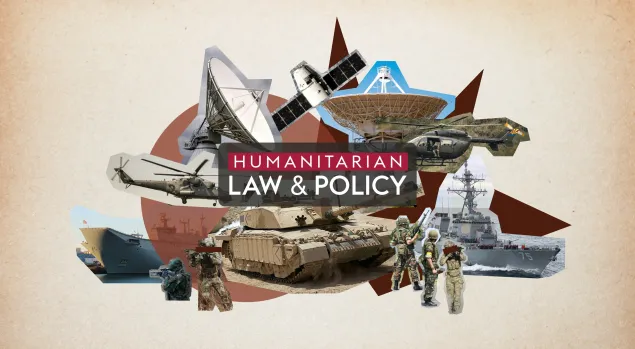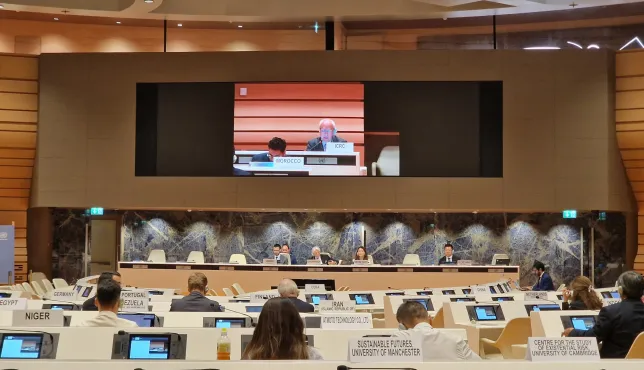Outer space weapons and international humanitarian law
Space systems have been employed for military purposes since the dawn of the space era, despite the long-standing desire of the international community to explore and use outer space for peaceful purposes alone. As the role of these systems in military operations during armed conflicts increases, the likelihood of these systems being targeted also increases – with potentially significant impacts for civilians on earth.
Military operations in, or in relation to, outer space do not occur in a legal vacuum. They are constrained by existing international law, notably the UN Charter, the Outer Space Treaty, international humanitarian law (IHL) and the law of neutrality.
The ICRC is primarily concerned with the potential human cost for civilians on earth of the use of weapons and other military operations in, or in relation to, outer space during armed conflicts, and the protection afforded by international law, including IHL, against their effects.







